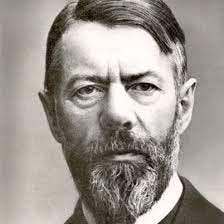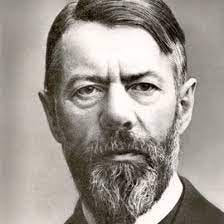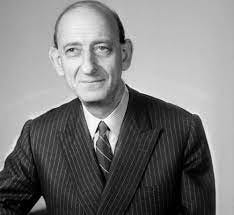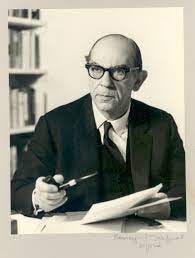I hate politics. I’m not talking only of the politics at the state and regional levels, ruled by democratic elections. I’m also talking, e.g., of the lower-level politics in my academic profession at the national level or in my university. This is probably partly due to features of character. I’m an introverted person who, while opinionated, prefers to avoid conflicts – at least as long as possible. This is also related to intellectual beliefs and commitments. With respect to Benjamin Constant’s famous contrast between the “liberty of ancients” and the “liberty of moderns”, I’m definitely convinced that the latter but not the former is a primordial value. As persons, we should be free to live as we want within our private sphere. While this sphere cannot obviously extend infinitely, it should be as large as possible, and its restriction must always be submitted to the requirement of public justification. I don’t think however that what is sometimes called “political freedom” matters as much. Of course, people who wish to engage in political life should be free to do it, but there is no corresponding duty. Political freedom is itself “negative”, not “positive”. Relatedly, to appeal to another famous distinction (from Albert Hirschman), I’m definitely more the “exit” kind of guy than the “voice” one. I firmly believe in the “power of voting with one’s feet”. I’m convinced that over the long run, this is the best way to change institutions and practices in a nonharmful and stable fashion.
This introspection reflects I think a more general tension that many persons who self-identify as “liberals” (in the European, classical sense of the word) are facing, as Eric Schliesser has recently written:
“To speak bluntly: many recently influential liberal thinkers have a distaste for politics. Among many so-called classical liberals, politics is near synonymous with rent-seeking. Ironically, this accepts the Marxist interpretation of capitalism.) The problem is that if you turn your back on politics you end up being tempted to put your faith in transitional enlightened dictators or a technocracy that disguises the sectorial interests they promote behind the jargon and the authority of science as a means to silence others.”
Let’s put the second part of the quote aside for the moment. I think Schliesser is right that many classical liberals, not only the “recent and influential” ones, are intuitively attracted by the public choice approach to politics. This is partly related to the intellectual beliefs and commitments I refer to above. When you genuinely believe that what matters the most is the respect for one’s individual rights for property and privacy, you cannot but see any active engagement in politics as the demonstration of one’s will to achieve the power to gain personal advantages at best, to dominate others at worst. For what would be the point of having political power if your only motivation was to be free to live as you want in your private sphere?
The problem obviously is that there can be other genuine motives to be politically active that do not reduce to purely self-interested and hegemonic considerations. To start with, politics may be needed to ensure that the ideals classical liberals value so much are actually respected. The liberty of moderns does not need politics only in a world where it is already established and safeguarded. Without necessarily endorsing a Hobbesian view of politics, rights and liberties cannot be taken for granted and have to be defended. The rule of law and a constitutional regime are means to achieve this end, but they are only effective through practices that by nature are constitutive of politics. Moreover, as Constant and even more notoriously Tocqueville pointed out, an exclusive emphasis on the liberty of moderns carries the risk of promoting an individualistic indifference to public matters that threatens to weaken its moral basis.
The problematic relationship of classical liberalism with politics is well captured by what Joshua Cherniss – using Isaiah Berlin’s term – calls the “liberal predicament”.[1] Classical liberals conceive politics as an activity to be strictly limited. Limited by the constitution and the rule of law. Limited by countervailing powers. Limited also by an ethos or political morality, according to which people should refrain from persecuting, using violence, or humiliating others, whatever the kinds of legal justification that one may be tempted to find for these morally unacceptable activities. But what to do when some, sometimes a majority in society, reject those limits? What about those who argue that “the ends justify the means” and who simply refuse to play along the rules of the political game settled by the classical liberal? The liberal predicament refers to the fact that classical liberals are easily trapped in an unsolvable dilemma: either they stick to their ethical commitments at the risk of being marginalized if not eliminated; or they go beyond the limits they have settled and as a matter of fact, renounce to their liberalism. The awareness of this predicament also helps to explain why classical liberals have a distaste for politics. The fact of politics – i.e., the fact that human societies are necessarily governed and regulated by coercive relations – is more difficult to assimilate for classical liberalism than for any other ideology and philosophy.
It is in this perspective that we can understand the critique that has been addressed to Rawls’s “political” liberalism for not being, ironically, political at all.[2] While Rawls recognizes the kind of pluralism that partly explains why political conflicts are unavoidable – and Rawls is clear that he speaks of the fact of pluralism – he has faith in the ability of a constitution based on liberal principles of justice to solve almost automatically these conflicts by making sure that they never go beyond the overlapping consensus that makes society well-ordered. As I have discussed in another post, however, this makes political liberalism vulnerable to a “sectarian conundrum” because, as a matter of fact, there is no such consensus in open societies. Rawlsians are then left with the option of marginalizing “unreasonable” persons by political means. Ignoring the liberal predicament does not make it disappear.
Not all liberals are guilty of ignoring politics. The value of the writings of Isaiah Berlin and Raymond Aron (two of the authors discussed by Cherniss in his aforementioned book) is to articulate genuine liberal commitments with a realist account of politics, largely inspired by Max Weber’s pessimistic view of the inevitability of coercion and the related necessity to make sure that its exercise is legitimate. Interestingly, Berlin and Aron have sometimes been viewed as promoting the kind of “democratic technocracy” which, if we follow Schliesser, emerges when you choose to ignore politics. I don’t know if that is justified – for sure, as liberals, Aron and Berlin have not been promoting and actually have been warning against a “populist” form of democracy that equates majority with legitimacy – but their work helps to understand why politics is both to be feared and necessary from a liberal perspective.
It is to be feared because its coercive nature challenges the ability of individuals to choose among the incommensurable ends that they can pursue in their lives. Behind the exercise of political power often is hidden the authoritative and unjustified pretension of determining what the ultimate ends worth to be pursued, individually and collectively are. The incommensurability of values – “value pluralism” – is the ultimate justification for the liberty of moderns because there is no rational authoritative way to impose, politically, a form of life. Politics is nonetheless also necessary. As said above, it is a fact of human life to be reckoned with. More than that, politics is where the Weberian “ethics of responsibility” should find its expression. You need politics because, at some point, you need relatively enlightened minds, conscious of the limits of their knowledge and of the plurality of values, to make tradeoffs that engage the whole society. If the space is left vacant, populist leaders (pretending to speak in the name of the People) will occupy it.
I started this post by saying that I hate politics. I still hate it. I still believe that politics – at all levels – mostly attracts persons who want to advance their own agendas and satisfy their thirst for power. I still think that the public choice model of politics is essentially correct. But I recognize that we cannot do without it – even though, as far as I’m concerned, I try to keep my hands out of it as much as I can. Balancing one’s liberal convictions with the necessity of politics is just another instance of the value pluralism that is constitutive of modernity, as Weber, Aron, and Berlin have argued.
[1] Joshua L. Cherniss, Liberalism in Dark Times: The Liberal Ethos in the Twentieth Century (Princeton University Press, 2021).
[2] John Gray, Two Faces of Liberalism (Oxford: The New Press, 2002). John Skorupski, “Rawls, Liberalism, and Democracy,” Ethics 128, no. 1 (2017): 173–98.







There's an alternative that you haven't considered: a "patriotic" politics that's neither pluralist (Berlin, Weber) nor monist (political liberalism, as you described). It would have us, at least at first, respond to conflicts with conversation rather than negotiation (the pluralist's approach) or pleading (the monist's) in order to make reconciliation possible, not merely accommodation. And when a conflict is truly reconciled, those involved achieve much more than the "damage control" that's the height of the value pluralist's ambition. For the outcome is truly win-win for all concerned.
That you hate politics is understandable. So why not try a better politics?
Anti-vulgar Marxist sociologist, here. To keep things short I'll be more vulgar in my Marxism than I am. Capital's private property - designated for production, and workers' private property (rented or owned) designated as reproduction - your introverted private sphere, is and always has been produced by means of coercion, violence and destruction... whether in Western colonies, Northern industrialization, or by means of capitalist uneven development. Alienation andestrangement from the land, means of production, products, laborpower, productive self-activity, others, public space and the immanent potential for yet structural denial of prospective flourishing is violent at it's core, yes? Moreover, the character of capitalist and public access to and relations with natural resources/green spaces, labor markets/social reproduction, and built infrastructures/civil society is inescapably mediated by the state, by politics. For me, along these same lines, the state of the discourse on - and the social generation of the lived experience of/preference for - extroversion and/or introversion is a product of (sticking with variations on a theme by liberalism) social facts tied to the kinds of anomic, disequilibrated, meaningless, and instrumental-rational mode of modern capitalist bureaucratic living. Our individual social psychologies are sociopolitical all the way down. But it's even more than that, Jack Turner (2008) published an account of Democracy in America that emphasized the ways in which individualism - insular, if not introverted, liberalism - tends, overwhelmingly, to be blind to, and actively deny, structural inequalities (anti-racist Marx) and social interdependency (feminist Durkheim). Turner stressed the way in which individualists, for deTocqueville, were blind to the ways in which their "hard-earned, self-disciplined, morally-upstanding, independent, entrepreneurial" success was predicated in large part on not having to compete with any enslaved Africans or politically and economically disenfranchised women but also the unremunerated and devalued reproductive and domestic labor socializing children for roles around racism, patriarchy and class. All of this, of course, doesn't account for colonialism, indigenous genocide, forced migration, ecological devastation, military adventurism, etc when it comes to situating individualism on the frontier, on farms, in small businesses, among craft laborers, or the post-war middle class. (Keeping this short, I am sure, has it read like an angry polemic, I don't mean it to... my apologies because I am sure it did.) Are there philosophers addressing these assessments of liberalism as sociologists, geographers, feminists and environmental historians do?